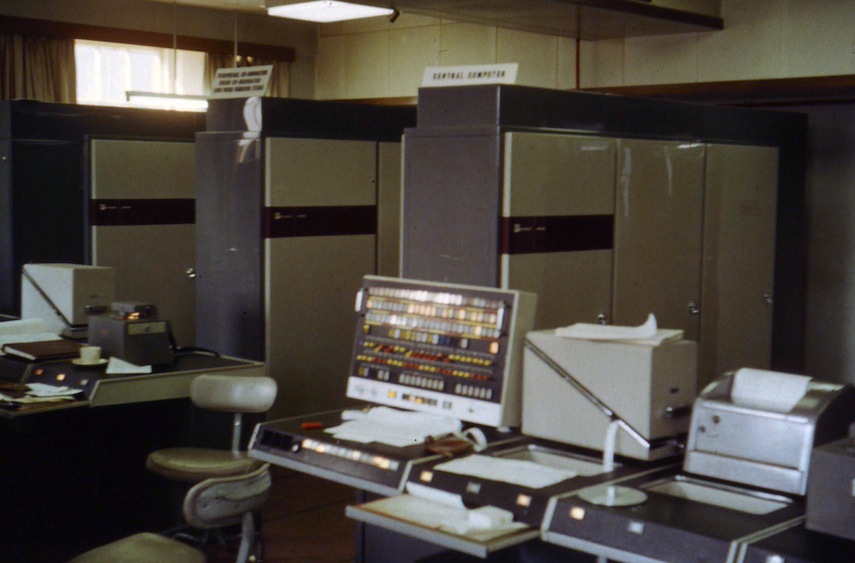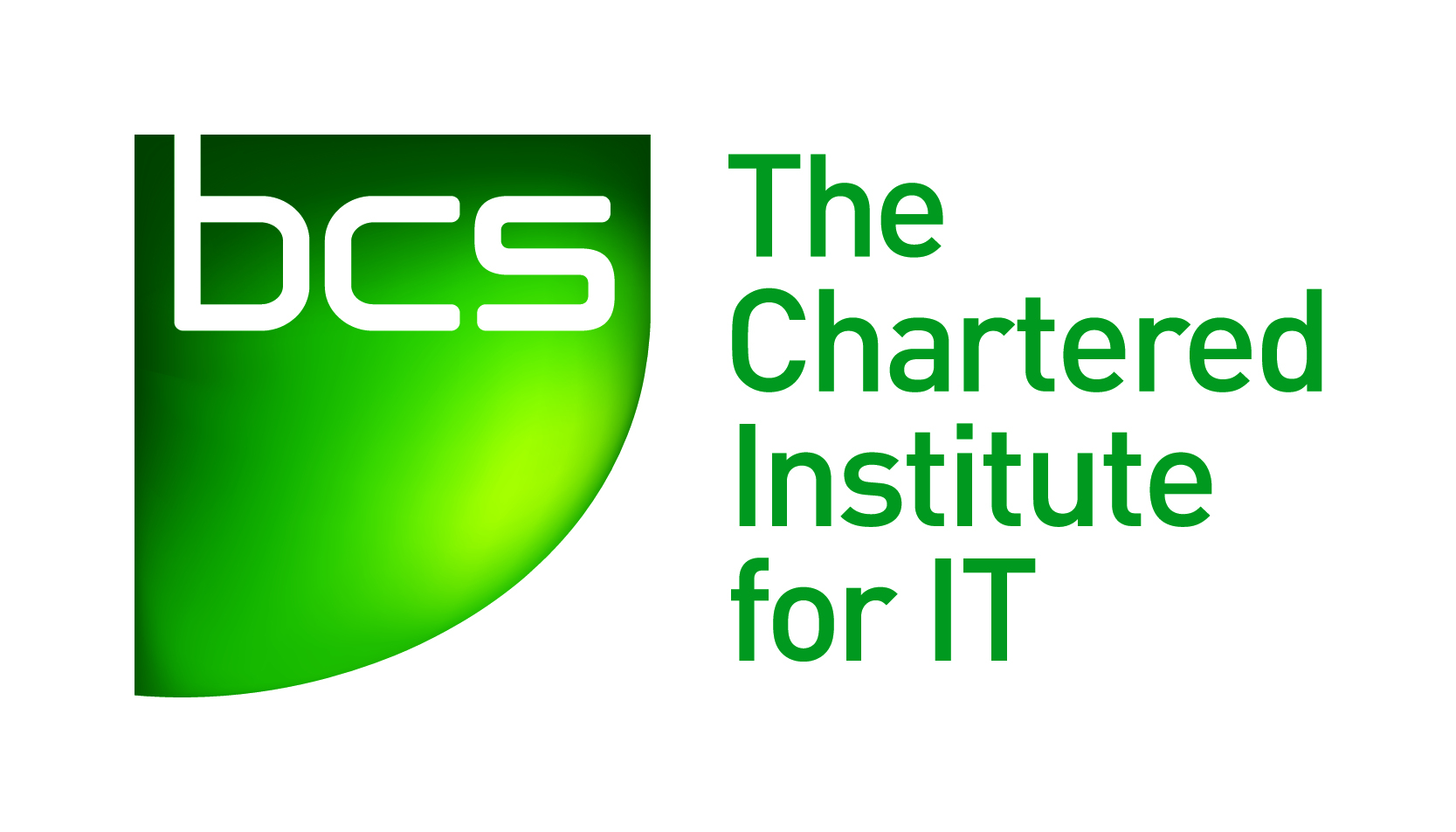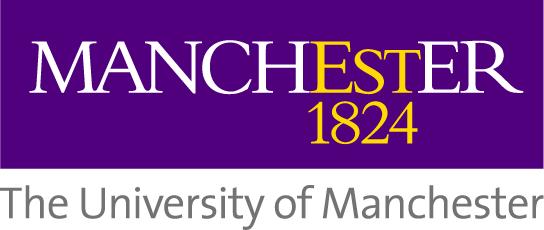Memories of the Ferranti Atlas computer
The high-performance Atlas computer was developed in
the period 1956—1962 by a team led by Professor Tom Kilburn at
the University of Manchester. The local company Ferranti
Ltd. joined the project in 1959. The first production Atlas was
inaugurated at Manchester University on 7th December 1962 by Sir
John Cockcroft, the Nobel prize-winning physicist who was Director
of the UK’s Atomic Energy Authority. At the time of its
inauguration, Atlas was reckoned to be the world’s most powerful
computer. A total of six Atlas 1 and Atlas 2 computers were
delivered between 1962 and 1966.

Following the 50th Anniversary celebrations in
December 2012, it was decided to collect reminiscences and historical
anecdotes from the surviving designers and users of Atlas computers.
This new collection, listed below, supplements existing information
available on websites such
as: Chilton
computing and Computer Heritage and the personal accounts from
pioneers that have appeared from time to time in the Computer
Conservation Society's quarterly bulletin Resurrection.
In June 2022 the Atlas project was awarded an
IEEE Milestone bronze plaque. The technical case for this award, which contains many
useful source references, is set out here.
Downloadable Atlas anecdotes and histories
The authors of the following documents welcome
comments and discussion on these, and other historical matters. In
the first instance, please contact the Editor.
- The Atlas Story.
Author: Simon Lavington
Abstract: Originally produced for the Atlas Symposium held on 5th December 2012 in the School of Computer Science, Kilburn Building, University of Manchester, this illustrated booklet gives the history of the Atlas project from its inception and implementation to the switching-off of the last working Atlas.
- NRDC and the case for a British supercomputer, 1956 to 1960.
Author: Simon Lavington
Abstract: This paper describes the political, technological and marketing background leading to the decision to develop the Atlas computer by Manchester University and Ferranti Ltd.
- Timeline of the MUSE/Atlas project at Manchester University, 1955-1971.
Author: Simon Lavington
Abstract: The paper lists the steps in the evolution of the Manchester Atlas project from the prototype Mercury computer (Meg) in 1954, through the decision by Manchester University to build a fast computer in 1957, the involvement of Ferranti in 1958 and the official inauguration in 1962, to the final switch-off in 1971.
- The Compiler Compiler - Reflections of a User 50 Years On.
Author: George Coulouris
Abstract: Describes the author's use of the Brooker-Morris Compiler Compiler in the development of the CPL1 compiler for the London University Atlas.
author
- Memories of Atlas Fortran.
Author: Ian Pyle
Abstract: The Atlas Fortran compiler and its associated programming
system were intended to ease the transition in 1964 of Harwells computing
work from the then current computers to the new Atlas. To do this, we
had to have the compiler available when the Atlas arrived. So we made
a cross-compiler on the IBM 7090, which produced cards that could be
loaded onto the Atlas, needing only the loader on the Atlas itself. By
writing the compiler in Fortran, it could translate itself. I think
this was the first Fortran compiler written for an non-IBM computer,
and the first use of this bootstrapping technique for a compiler.
- My involvement with Atlas: reminiscences of events.
Author: Brian Hardisty
Abstract: Describes the authors involvement with the Atlas Supervisor and Atlas customer support, and the influence of this time on his working life.
- Atlas 2 at Cambridge Mathematical Laboratory.
Author: Barry Landy
Abstract: This paper plots the development of the TITAN/Atlas 2 at Cambridge, and the work done to turn it into a multi-user, time-shared system. It also briefly mentions the other two production Atlas 2s, at Aldermaston and the CADCentre in Cambridge.
- Days and nights with the Manchester Atlas.
Author: Ann Moffatt
Abstract: In 1962, Ann Moffatt was an applications programmer with Kodak, and was one of the staff from early Atlas users who were corralled by Ferranti to help debug the Supervisor. The paper describes her experiences working on Atlas at Manchester during the commissioning of the machine.
- Recollections of the Computer Laboratory at Manchester 1955 to 1964.
Author: David Aspinall
Abstract: The paper describes the authors work as a post-graduate student at Manchester, which led to him being invited to join the Atlas design team. It covers his involvement with the development of the arithmetic unit and magnetic tape control, and the commissioning of MUSE, the Manchester University Atlas.
- Anecdotes of an Atlas maintenance engineer
Author: John Crowther
Abstract: John Crowther joined Ferranti in 1962 from Manchester University and became a maintenance engineer, working on the London University Atlas. His reminiscences beautifully illustrate the problems (and the pleasure) of working on a supercomputer in the 1960s.
- The footloose Australian - Peter Jones' Atlas experience
Author: Peter D. Jones
Abstract: Peter Jones worked for Ferranti on Atlas from 1961 to the end of 1963. During this time, as well as working on the Supervisor, he represented the company at conferences and sales presentations throughout the world and was christened 'the footloose Australian' by Tom Kilburn.
- The London University Atlas
Author: Dik Leatherdale
Abstract: This is the edited transcript of a talk given at the Atlas 50th Anniversary Symposium on 5th December 2012. It traces the history of the London University Atlas from purchase to eventual closure.
- Audio interview 1: Atlas Supervisor (Howarth/Wyld)
Abstract: Transcript of a 40-minute audio interview with D J Howarth and M T Wyld,
conducted in Manchester by Simon Lavington on 6th December 2012. David Howarth and Mike
Wyld were intimately involved in the design and implementation of the Atlas Supervisor (the
Operating System).
- Audio interview 2: Atlas hardware (Edwards/Chen)
Abstract: Transcript of a 58-minute audio interview with D B G Edwards and E C Y Chen,
conducted in Manchester by Simon Lavington on 6th December 2012. Dai Edwards and Yao
Chen were intimately involved in the design and implementation of Atlas hardware.
- Engineering credibility
Author: Dik Leatherdale
Abstract: Was it a hardware error or a software bug? This is the story of a tricky fault on the London Atlas. Much detective work was required before a particular program could be induced to work again. This time, it was the hardware that was to blame.
- Yao Chen rides to the rescue
Author: Dik Leatherdale
Abstract: Yao Chen became Ferranti's chief fixer of Atlas hardware faults. This paper describes an
incident at the London University site in the early 1970s that nicely illustrates Yao's skills.
- Chilton Atlas hardware at the National Museums Scotland
Author: Simon Lavington
Abstract: Most of the hardware from the Chilton Atlas was donated to the Royal Scottish Museum in
1973, where it remains in storage. This illustrated report, written for the National Museums Scotland,
includes a technical description of the artefacts and their relation to the original Atlas installation at
Chilton.
- Designing and building Atlas
Author: Dai Edwards
Abstract: This article, which first appeared in Resurrection, is written by the person who led the
hardware design team. It deals with the technical challenges that were overcome in producing an
advanced computer.
- Mercury Autocode, Atlas Autocode and some associated matters
Author: Vic Forrington
Abstract:Vic joined Tony Brooker's group at Manchester University in 1961,
after two years' work at RAE Farnborough using Mercury Autocode. He
provided user support on Mercury and Atlas, undertook research in
numerical analysis and helped Tony with the specification of Atlas
Autocode. Vic was involved with various other Atlas programming
activities and his reflections on his pre- and post- Manchester
periods make fascinating reading.
- Tony Brooker and the Atlas Compiler Compiler
Author: Simon Lavington and many others.
Abstract:
Tony Brooker, the originator of the Compiler Compiler (CC), led the group that wrote compilers for the Manchester Atlas. This article uses the memories of team members to describe the origins of the CC and its use at several of the Atlas sites. A special section, written by Tony, reflects on the CC's techniques and the relationship with other compiler generators.
- Ferranti Atlas 2 computers at AWRE Aldermaston and at the CAD Centre
Author: Simon Lavington
Abstract:
Two production versions of Atlas 2 were installed: one (in 1964) at the Atomic Weapons Research Establishment, Aldermaston, and the other (in 1967) at the Ministry of Technology's Computer Aided Design Centre in Cambridge. This paper describes the background to the two installations, the hardware and software configurations, and the activity carried out at each site.
- My life on Atlas 1 and 2
Author: Brian Chapman.
Abstract:
Brian Chapman worked for Ferranti for six years from spring 1960, initially on Atlas 1, first in Newman Street and then at
AERE Harwell. Later he worked on Atlas 2 at AWRE Aldermaston and on Titan at Cambridge. He describes in some detail the
software working practices of the time at Harwell and the technical decisions taken in the development of a Fortran compiler and
the HARTRAN run-time environment.
- Guide to Ferranti Atlas circuit packages
Author: Simon Lavington.
Abstract:
This document gives a technical explanation of Atlas logic circuits together with a reference-list of all the types of printed-circuit packages used in a complete Atlas installation. Photographs of specimen pcbs are included.
- Talking with computers
Author: Simon Lavington.
Abstract:
A fast on-line Analogue-Digital-Analogue Converter was, at the time, amongst the more unusual peripherals attached to the Manchester Atlas computer. This device was principally used for research into automatic speech recognition and the production of synthetic speech. Some provisional results are described.
- The Atlas X-Ray Diffractometer
Author: John Standeven.
Abstract:
The use of X-ray diffractometers in studying the internal structure of a crystal at the molecular level typically involves the collection of several thousand measurements. Each measurement requires the crystal to be set to a precise position in 3D, followed by a scan of the diffracted X-Ray beam to record its intensity. At Manchester an innovative on-line control and data collection system was developed to link a 4-circle X-Ray Diffractometer to the Atlas computer. The system and its use are described.
Downloadable Atlas source documents
Below is a selection of original Atlas documents that have been recently scanned and prepared for downloading. We have chosen to focus on items that are not generally available on other publicly-accessible websites.
- The story of Atlas, a computer
Author: Iain Stinton.
Abstract: This 75-page book, originally published in 1973, has recently been transcribed by Dik
Leatherdale and Bob Hopgood. The book outlines the history of the London University ATLAS and
gives an informal description of the way in which the machine operated.
- The Compiler Compiler
Authors: R A Brooker, I R MacCallum, D Morris and J S Rohl.
Abstract: This paper originally appeared in Annual Review in Automatic Programming, Volume III, Pergamon Press, 1963, pages 229 - 276.
The paper has recently been transcribed from a contemporary ICT reprint by Iain MacCallum and Dik Leatherdale.
- Some aspects of the implementation of the Compiler Compiler on Atlas
Author: Iain MacCallum.
Abstract:This is the main text of Iain MacCallum's
M.Sc. thesis, submitted in January 1963 to the University of
Manchester. It is best studied with reference to the next four
documents, which give practical information on the code used in
December 1963 to create a copy of the Compiler Compiler on the
Supervisor magnetic tape at Manchester.
- Compiler Compiler source code
Author: Various, including Tony Brooker, Derrick Morris, Iain MacCallum and Jeff Rohl.
Abstract: This document is the result of a careful OCR scan
by Iain MacCallum and Dik Leatherdale of the original code used in
1963 to create a copy of the Compiler Compiler. The foolscap listings
of the original code (total 218 pages) are contained in a Red Binder.
The code resulting from the OCR scan has been run on an Atlas
emulator, as part of the checking process. A demonstration of the
faithfulness of the reconstituted code was completed in May 2014, when
the reconstructed Compiler Compiler was successfully used to execute a
trivial program written in the Compiler Compiler language running on
two independent Atlas emulators.
- Six CC test runs
Authors: Various.
Abstract: This is a scan of the Lineprinter output arising from six
development runs of the Compiler Compiler source code. Five of the
runs produced fault-monitoring output. The final run was successful
and shows that a copy of the Compiler Compiler had been loaded onto
the Supervisor magnetic tape.
- Original Compiler Compiler flowcharts
Author: Jeff Rohl.
Abstract: Jeff Rohl produced these notes and flowcharts in the period
summer 1961 to spring 1962. The first version of the Compiler
Compiler became operational in June 1962 and was improved at various
times over the next 18 months. The flowcharts show evidence of
modifications during this period and are covered witqh annotations
from Derrick Morris and others. There are 118 pages in all, of which
nine sample pages are given here. These cover routines R213, R214,
R218, R220 and R221. The original flowcharts were archived in the
School of Computer Science, University of Manchester, whose permission
to reproduce is gratefully acknowledged.
- An explanation of the Compiler Compiler listings
Authors: Iain MacCallum and Dik Leatherdale.
Abstract: This document, written in September 2014 at the
conclusion of nine months of careful detective work, comprises a
detailed annotation of the Red Binder referred to above, which
contains the original listings that have survived from 1963. The Red
Binder holds 30 pages of Atlas octal input, 107 pages of Atlas
Intermediate Code, 75 pages of PHRASE definitions and finally the
lineprinter listings of five erroneous runs and one successful run of
the processes to create the Compiler Compiler. The annotation follows
the terminology used in the original flowcharts referred to above.
- An introduction to the Compiler Compiler
Authors: R.B.E. Napper.
Abstract:
This is a transcription by Dik Leatherdale of an original document written in December 1965 (and revised October 1966) by Brian Napper, of the Department of Computer Science, University of Manchester. The original copy as transcribed belongs to John Davies, who used it in 1974 when writing his M.Sc. dissertation on a A Language-Independent Macro System for MU5.
- The Atlas Bible
Authors: Dik Leatherdale and Simon Lavington.
Abstract: This is an early Atlas description, consisting of
335 foolscap pages "intended for persons concerned with the design of
the system". Each page has an issue-date. Individual pages were
updated over the period June 1959 to July 1963 and inserted in a
ring-binder as the Atlas hardware and systems software matured at
Manchester. The whole, marked "confidential" , was known colloquially as the Atlas
Bible. The pages in this particular copy span the period 2/1/61 to
1/7/63, with most of them being issued prior to September 1962. They
therefore represent a historically-interesting snapshot of a
developing project. Topics covered include everything from the timing
and overlap of instructions to the layout of the
engineers' console.
- The basic Atlas packages
Authors: Ferranti West Gorton.
Abstract: This is Report EP32, issued April 1961. It contains technical descriptions and circuit diagrams of the seven Atlas basic circuit types, from which other variants are derived. Does not include the special circuits used for the parallel adders, core stores, magnetic tape and drum systems, etc. Note that the circuit diagrams shown are early versions and do not include later minor modifications, for example 'Tom's Diode'.
- The Atlas parallel adder
Authors: Ferranti West Gorton.
Abstract: his 16-page foolscap document describes the
operation of the special circuits used in the Atlas B Adder. It
includes waveform names and circuit diagrams for printed-circuit
packages 811, 812, 813 and 814. The document, issued in 1963, formed
part of the material given to Atlas maintenance engineers during their
time at Ferranti's West Gorton Engineering Training School.
Other Atlas material
A
short documentary
film was produced by Google in 2012. This features extracts from
a 1962 Ferranti film and interviews with some of the people involved
with the Atlas project.
Some pictures of Atlas are in
our gallery.
An Atlas emulator and an Atlas simulator are available.
This website's content is edited by Simon Lavington. It is now an archived record of the event.
Sponsors

.jpg)


|